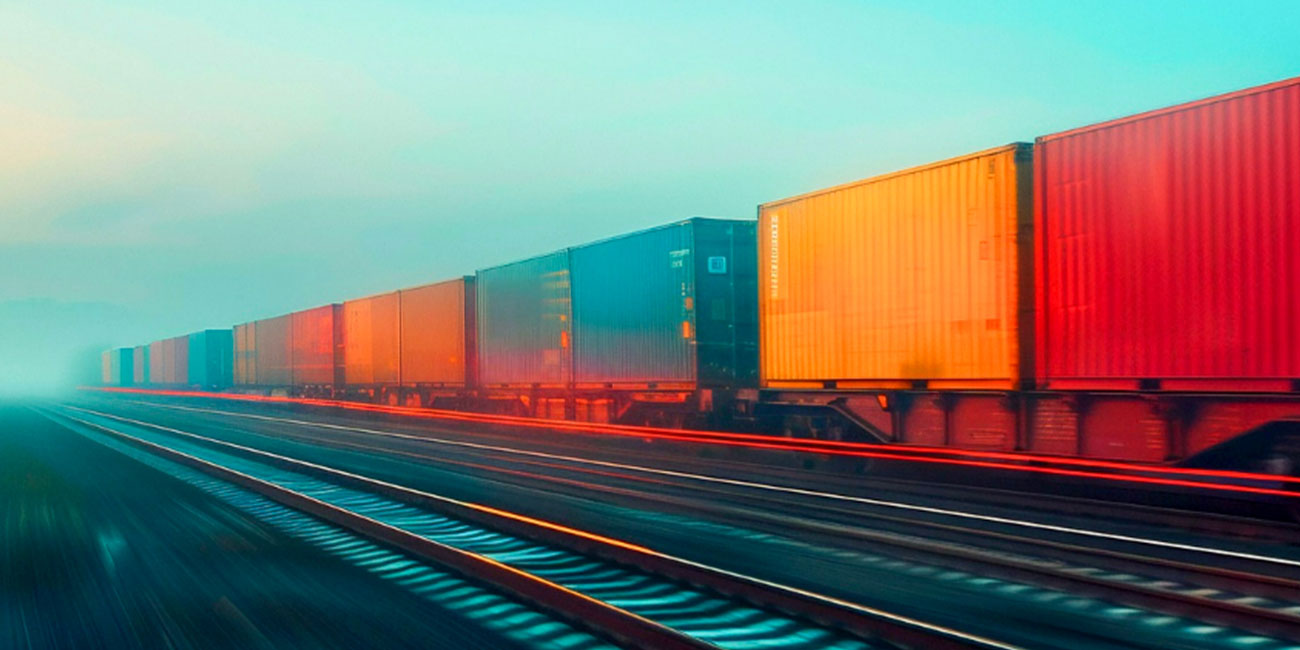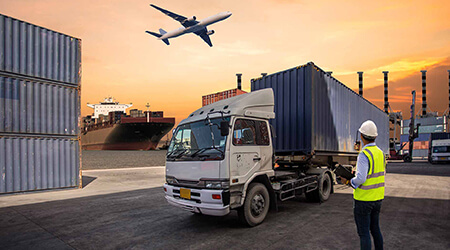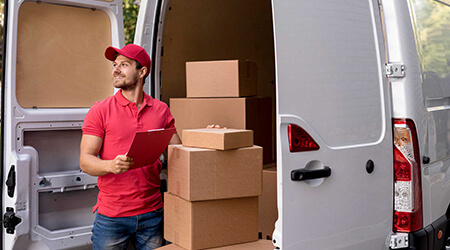
Sustainable Rail Transport Solutions
Spedition Hess GmbH offers efficient and environmentally friendly transport solutions by rail. As a responsible company, we rely on rail transport as a sustainable alternative to road transport. With our comprehensive network of rail connections throughout Europe and beyond, we enable you to transport large quantities of goods reliably and cost-effectively over long distances.
Our rail transport solutions are particularly suitable for the transport of bulk goods, containers, vehicles and other goods where sustainability, cost efficiency and reliability are paramount. By combining with other modes of transport within intermodal transport chains, we offer you customized solutions for your specific requirements.
Our Rail Transport Services
As an experienced logistics service provider, we offer you a comprehensive portfolio of rail transport services. We understand the specific requirements of various industries and adapt our solutions accordingly.
Rail transport is not only more environmentally friendly than road transport, but also offers economic advantages through high transport capacities and planning security. With our customized rail transport solutions, we support you in making your logistics more sustainable and efficient.

Intermodal Transport
We combine the advantages of different modes of transport and offer seamless intermodal transport solutions. Through the intelligent linking of rail, road and possibly sea freight, we optimize your transport chain in terms of costs, time and environmental impact.

Block Trains & Single Wagon Traffic
Depending on transport volume and requirements, we offer both block trains for large quantities and single wagon traffic for smaller shipments. Our regular connections to important economic centers guarantee reliable transport times and high planning security.
Frequently Asked Questions About Rail Transport
Here you will find answers to the most frequently asked questions about our rail transport services. If you have any further questions, please do not hesitate to contact us.
-
What advantages does rail transport offer compared to other transport methods?
Rail transport offers numerous advantages: Significantly lower CO2 emissions compared to road transport (up to 80% less), high transport capacities for large quantities of goods, independence from traffic jams and weather conditions, high planning security through fixed timetables, lower accident risk, lower energy costs per ton-kilometer, and the ability to transport dangerous goods safely. Especially for long distances and large transport volumes, rail transport is often the most economical and environmentally friendly option.
-
What is intermodal transport?
In intermodal transport, goods are transported in a standardized loading unit (usually containers) and transferred between different modes of transport (rail, road, ship) during transport without the goods themselves being reloaded. This combines the flexibility of road transport for the first and last mile with the economic and ecological advantages of rail transport on the long haul. Intermodal transport reduces CO2 emissions, relieves the road network and offers a cost-effective solution for medium to long transport distances. We organize the entire intermodal transport process for you from a single source.
-
Which goods are particularly suitable for rail transport?
Rail transport is particularly suitable for: Bulk goods such as coal, ores, steel and building materials, chemicals and dangerous goods, containers with general cargo or consumer goods, vehicles (automotive industry), agricultural products, wood and paper products, as well as oversized or heavy goods that would require special permits on the road. Generally, rail transport is always particularly advantageous when large quantities are to be transported over medium to long distances and the time factor is not the highest priority. We are happy to advise you whether your goods are suitable for rail transport.
-
How does the combination of rail and road transport work?
The combination of rail and road transport usually takes place via intermodal terminals or transshipment stations. The process typically runs as follows: The goods are first transported by truck from the sender to the nearest rail terminal (pre-carriage). There, the container or swap body is loaded onto a train and transported over the long distance by rail. At the destination terminal, the loading unit is transferred back to a truck and transported to the final recipient (on-carriage). This combined transport optimally uses the strengths of both modes of transport: the flexibility of the truck for the first and last mile and the economy and environmental friendliness of the rail for the long haul. We coordinate all interfaces and ensure smooth operations.
-
How reliable are delivery times in rail transport?
Rail transport generally offers high planning security through fixed timetables and is less susceptible to traffic jams or weather conditions than road transport. Reliability has improved significantly in recent years, but can vary depending on the route and rail operator. Factors such as construction work, technical disruptions or capacity bottlenecks can occasionally lead to delays. For time-critical shipments, we offer special express rail services with guaranteed transit times. Through our tracking system, you always have insight into the current status of your shipment. We proactively inform you of any deviations and take alternative measures if necessary to meet your delivery deadlines.
-
What role does rail transport play in sustainable logistics?
Rail transport plays a central role in sustainable logistics and is a key element for achieving climate goals in the transport sector. With up to 80% fewer CO2 emissions compared to road transport, it contributes significantly to reducing the ecological footprint. It also relieves the road network, reduces traffic jams and accidents, and consumes less energy per transported ton. The EU and national governments promote the expansion of the rail network and the shift of freight transport to rail through various initiatives and funding programs. Companies that rely on rail transport not only improve their environmental balance but can also use this for their sustainability reporting and marketing. We support you in making your logistics more sustainable and provide you with detailed CO2 balances for your transports upon request.



